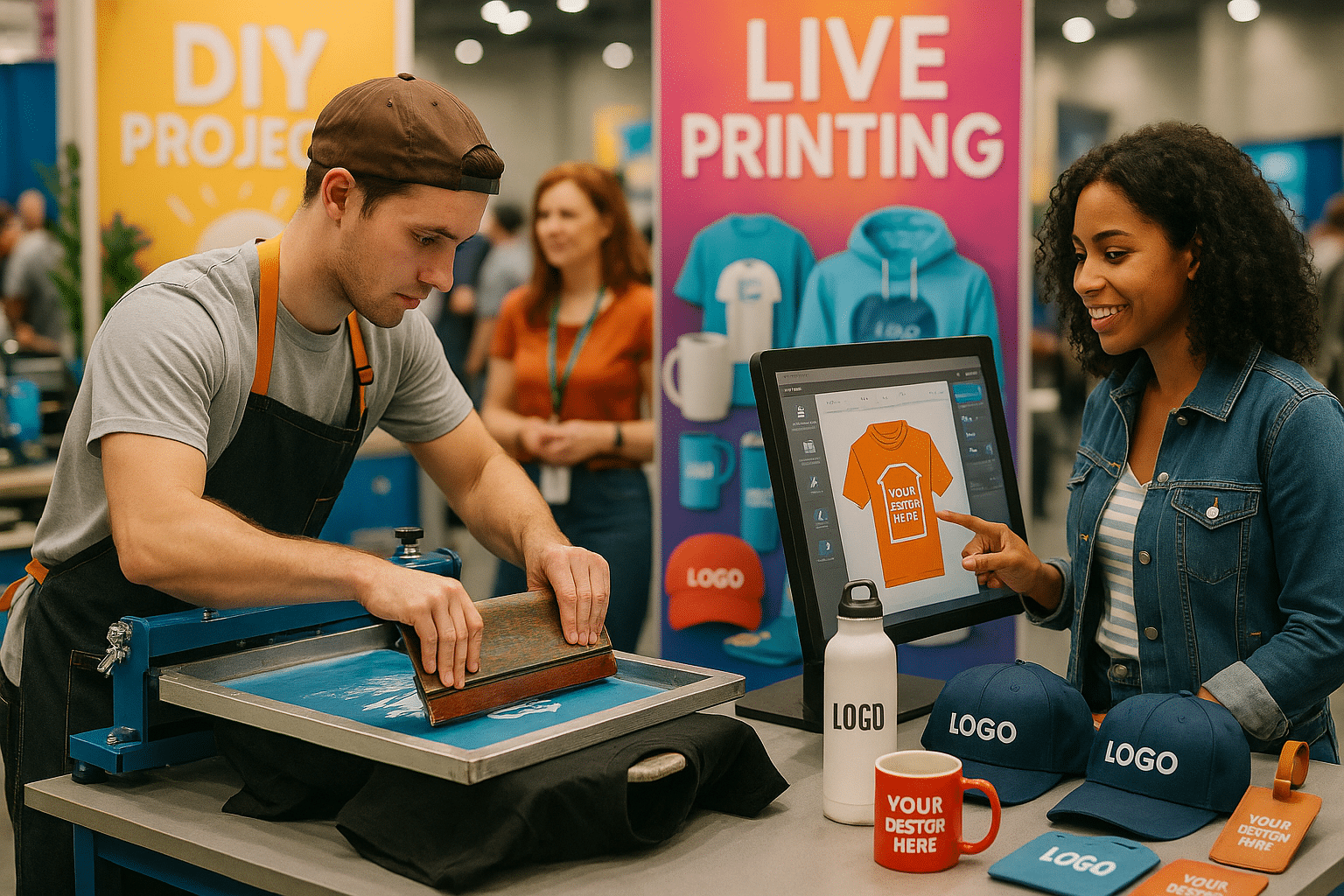Ultimate Guide to Event Planning: Tips, Trends, and Creative Ideas
Ultimate Guide to Event Planning: Tips, Trends, and Creative Ideas

Event planning can be overwhelming, but with the right tips and insights, you can create memorable experiences. From interactive trends and DIY inspiration to effective marketing and branding, this article will guide you through the essential aspects of successful event management while showcasing diverse promotional items like thermal bottles, mugs, and more.
Mastering the Art of Event Planning
When venturing into the realm of event planning, understanding the audience is paramount. The more insight you have about your attendees, the more tailored and memorable the experience you can create. Start by gathering demographic information—age, interests, location, and even previous event attendance can provide valuable insights. Look into what your audience engages with on social media platforms and during past events. This knowledge is crucial in crafting events that resonate with your guests and keep them coming back for more.
Budgeting is another cornerstone of effective event planning. Begin by establishing a realistic budget that accounts for every aspect of the event, from venue rental to catering, entertainment, and marketing expenses. Remember to factor in ancillary costs such as decoration, audio-visual equipment, and, importantly, a photo booth. Investing in a photo booth can elevate your event, providing guests with instant keepsakes that tie into the event theme. Explore options available for customization, from branded photo strips to themed backdrops, ensuring that the photo booth resonates with your brand identity.
When selecting a venue, consider both functionality and ambiance. Look for spaces that can accommodate your guest list and align with the event’s purpose—whether it’s a corporate meeting, wedding, or a community gathering. A venue should not only accommodate your attendees comfortably but also support the interactive elements of the event. For instance, if you plan to hire a photo booth, ensure adequate space is allocated to create an inviting corner where it can serve as a focal point for fun and engagement.
Catering is another critical area that influences the success of your event. Choose a menu that reflects your audience’s preferences and dietary restrictions—this shows consideration and can enhance guest satisfaction significantly. Consider interactive catering options like food stations or a DIY drink bar, creating a more engaging experience. Depending on your theme, providing customized items, such as branded mugs for your beverage bar, not only add visual interest but also serve as unique takeaway gifts for attendees.
Entertainment should align with the tone of the event, whether it’s live music, a guest speaker, or engaging interactive activities. Incorporating the latest trends is essential to keep the event relevant and exciting. For example, virtual reality experiences or gaming stations can attract the tech-savvy crowd, while traditional entertainers such as magicians or comedians can appeal to a broader audience. If you opt for a photo booth, consider integrating interactive features like GIFs or boomerangs, which are especially popular on social media.
To create a standout event, innovative marketing strategies play a crucial role. Utilize social media, email newsletters, and event websites to build excitement prior to the event. Sharing sneak peeks of what attendees can expect, such as behind-the-scenes looks at preparations or testimonials from past events, can generate buzz. Content marketing, like blog posts detailing the experience, can drive traffic and increase attendance. Keywords such as “hire photo booth” and “photo booth cost” can improve SEO on your event website, ensuring it surfaces in relevant searches and garners more attention.
Understanding the potential challenges faced by event planners is also critical. Problems such as vendor cancellations, budget overruns, or lower-than-expected attendance can arise. Hence, developing a contingency plan can alleviate last-minute stress. For instance, establish backup catering options, have alternative entertainment on call, and always work alongside trustworthy vendors.
Post-event activities are just as important. Gather feedback through surveys or social media interactions to determine what worked and what may need adjustment for future events. Engaging with attendees after the event, perhaps by sharing photos from the day (especially from your branded photo booth) or asking for their thoughts, fosters community and builds anticipation for your next gathering. Consider sending thank-you emails that include links to galleries showcasing the photo booth images, encouraging guests to share their experiences further on social media.
Emphasizing sustainability can also set your event apart in the growing eco-conscious landscape. Use reusable items, such as thermal bottles and hoodies, as part of your merchandise, highlighting your commitment to environmental responsibility. This not only resonates with modern attendees but can help to enhance your brand image, showing that you value sustainability without compromising creativity or fun.
Lastly, event success stories can serve as impactful testimonials that illustrate your capability as an event planner. Sharing these narratives can build trust in your skills and attract potential clients. Showcase diverse items like luggage tags or laser-engraved products that have featured in successful events, effectively demonstrating your attention to detail and customization capabilities. By emphasizing your journey and experiences, you position yourself not only as a planner but as an expert in creating unforgettable moments.
Ultimately, mastering event planning involves juggling many tasks while maintaining a keen focus on detail and creativity. By crafting engaging, interactive experiences that resonate with audiences and leveraging innovative strategies, you can ensure that every event you organize is not only memorable but also lays the groundwork for future success.
Conclusions
In conclusion, effective event planning combines creativity, strategic marketing, and attention to detail. By leveraging interactive trends and DIY inspirations, along with thoughtful branding and behind-the-scenes insights, you can ensure your events not only attract attendance but also resonate with your target audience, paving the way for future success.




